
1. Ban on Single-Use Plastic Cutlery Comes Into Force in England
A ban on some single-use plastic products will come into force across England on Sunday. Shops and hospitality businesses will no longer be able to supply plastic cutlery, balloon sticks, and polystyrene cups under the new rules. The government says the move will “tackle the scourge of litter and protect the environment from plastic pollution”. But councils have warned that some firms need more time to be ready for the change.
Some new restrictions will also be applied to the supply of single-use plastic plates, bowls, and trays – but exemptions are in place for takeaways and other businesses that sell pre-packaged food. The new rules, which were first announced in January, are part of a wider goal to eliminate avoidable plastic waste by 2042. Rules vary in different parts of the UK, but Wales and Scotland have pursued similar policies to those coming into force in England.
Thank you for your generous gift that will help us continue the production of this weekly, free publication
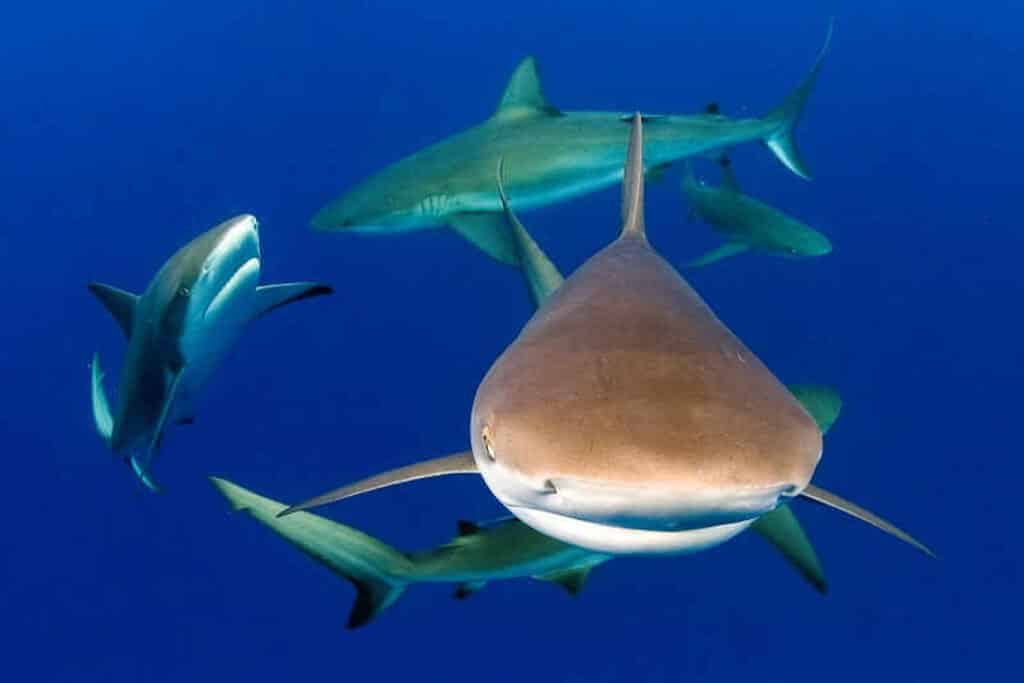
2. Dutch Government to Propose Higher Protection for Caribbean Reef Shark
BONAIRE–The Dutch government is set to officially propose listing the Caribbean Reef Shark on Annex III of the Protocol concerning Specially Protected Areas and Wildlife (SPAW) during the next conference of the parties for the Cartagena Convention in October. Annex III covers plant and animal species that need protection in order to recover in population. “This increased protection is critical for ensuring a sustainable future for this iconic species,” said the Dutch Caribbean Nature Alliance (DCNA) on Thursday.
Caribbean Reef Sharks’ numbers have reduced between 50% and 79% in the past 29 years due to climate change, pollution, and overfishing. The species is critical for maintaining the health and diversity of the entire coral reef by regulating the population of sick and weaker fish. The DCNA argues that more marine protected areas must be created, along with reducing pollution in the ocean, promoting sustainable fisheries, and improving enforcement of protective measures.
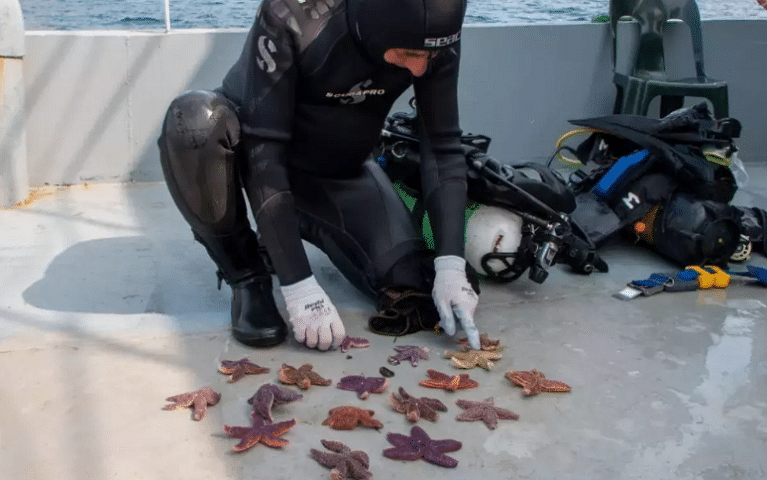
3. UN Development Project to Combat Predatory Starfish in Turkish Waters
The United Nations Development Program (UNDP) has initiated a project to combat the invasion of predatory Atlantic starfish in Turkish seas, including the Marmara and Black Sea, posing a threat to marine biodiversity. UNDP’s scientific research has revealed that due to the proliferation of Atlantic starfish across the entire Mediterranean, these invasive species have rapidly grown and seamlessly adapted to the environment along the Turkish coastlines.
Notably, it was underscored that these starfish consume mussels, a crucial marine resource in Türkiye’s coastal areas. In an effort to assist Türkiye in addressing this threat, the UNDP has collaborated with the Agriculture and Forestry Ministry’s Nature Conservation and National Parks Directorate. The “Marine Invasive Alien Species Project” has been initiated with financial support of $3.3 million provided by the Global Environment Facility (GEF).
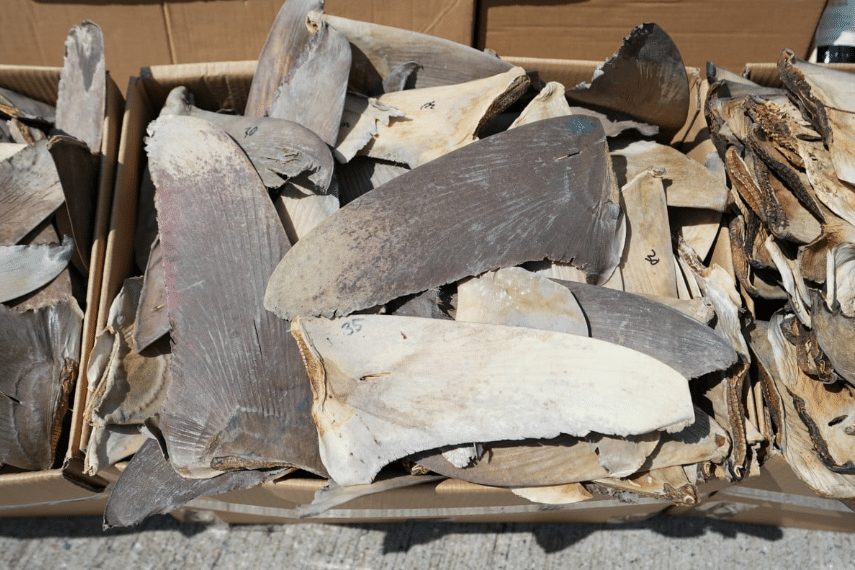
4. Hong Kong Customs Officers Put the Bite on Shark Fin Smugglers in HK – $100 Million Raids on Cargo Ships
Hong Kong customs officials have seized about HK$100 million (US$12.8 million) in contraband, including dried shark fins, and arrested three men after a raid on several cargo ships. Customs said the goods impounded in the operation, code-named Wave Breaker, also included electronic products, wine, and frozen meat. The haul included seven tonnes (7.7 tons) of dried shark fins, half a million electronic devices, 240 pallets of electronic waste, 2,000 bottles of wine, and three tonnes of frozen meat.
The seizures came after officials between August and September identified six ships scheduled to leave the city for Malaysia, Shanghai, Nansha, and Macau. The three men arrested, aged between 40 and 54, were released on bail. A conviction for the importation or exportation of shark fins can lead to a fine of up to HK$10 million and 10 years in jail.

5. Unveiling the Global Dominance: How Bottled Water Became an Everyday Necessity
In the early days, people relied on tap water for their daily drinking needs. The idea of purchasing water in a plastic bottle seemed absurd.
However, as the old saying suggests, when we need something, it often sparks our creativity and innovation. Creativity and innovation spawned, “The Convenience Factor”, followed by “Consumer Behavior Shifts”, Environmental Concerns became an issue, which then gave rise to the “Push for Sustainability”, “The Global Beverage Industry” changed its business model, followed by the populations “Cultural Shift” to wellness and sustainability.
So, what does the future hold for bottled water? The industry continues to evolve, driven by consumer demands for healthier and more sustainable options. We can expect to see further innovations in packaging, water sourcing, and recycling methods. The battle against plastic pollution will likely intensify, with a focus on reducing the environmental footprint of bottled water.

6. Plastic Pollution: Lagos Recyclers Seek Protection of Marine Ecosystem
The Lagos Recyclers Association (LAGRA) called on individuals, governments, and corporate bodies to take responsibility for reducing waste, plastic pollution, and safeguarding the health and sustainability of the marine ecosystems. Dr. Femi Idowu-Adegoke made the call during the 2nd Annual Lagos Recyclers Conference and Exhibition with the theme: ‘Life Under Water’. He said it was pertinent to achieve Sustainable Development Goal 14 to conserve and sustainably use the oceans, seas, and marine resources for sustainable development.
“These ecosystems provide significant services to man including transport, abstraction of water for domestic and industrial use, power generation, reservoir of hydrocarbon deposits, and food security, among others. “Today, the world is producing 20 times more plastics than 40 years ago. This means that each year more than 8 million tonnes of plastic end up in the oceans, wreaking havoc on marine wildlife, fisheries, tourism, and marine ecosystems.
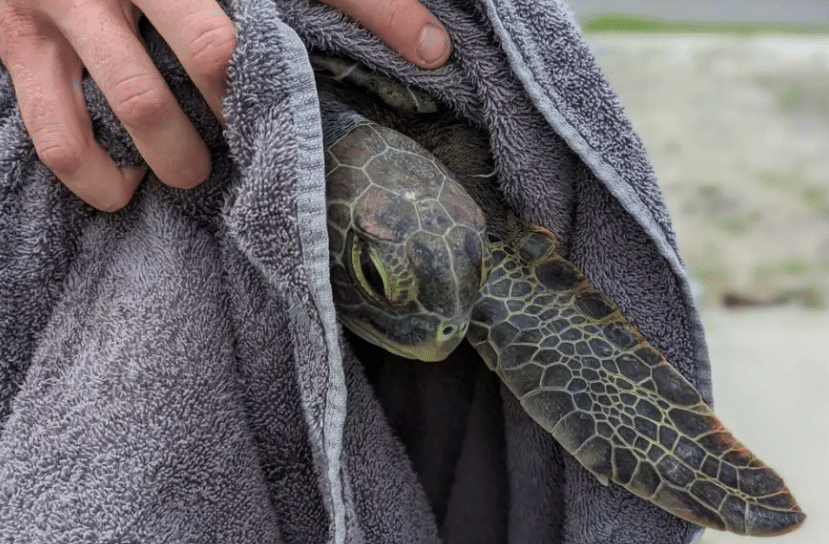
7. Juvenile Green Sea Turtle, Perhaps Blown Inland by Hurricane Ian, Found Thriving in Freshwater Pond
A young green sea turtle, the kind that breaks out of its egg, digs up through the sand, then crawls like crazy to the ocean, was discovered not out in the Gulf of Mexico but in a freshwater retention pond of an RV park in Fort Myers. The discovery of the sea turtle in the freshwater pond matched the one-year mark since Hurricane Ian made landfall in Lee County, and among the devastation the Category 4 storm wrought was the destruction of any sea turtle nests left on Southwest Florida beaches toward the end of 2022’s nesting season.
While the sea turtle was not reported to be in distress, the pond was landlocked and offered no avenue for the turtle to reach the Gulf. Active and healthy, the green turtle was relocated to Tarpon Bay, where it was released into a more suitable habitat.

8. Move Over, Highways. Now You Can Sponsor an Ocean Sanctuary
In a novel conservation strategy, the Pacific island state of Niue offers individuals and institutions the opportunity to sponsor its marine sanctuary, home to pristine coral reefs, sharks, whales, and hundreds of fish species. For a one-time fee of $148, you can sponsor a square kilometer of the Niue Moana Mahu Marine Protected Area, a 127,000-square-kilometer (49,000-square-mile) preserve that comprises 40% of Niue’s territorial waters.
Niue occupies a coral atoll that’s about a third the area of New York City, but its 1,700 people control a swath of the ocean bigger than New Mexico. Niue, a self-governing state in free association with New Zealand, aims to raise $18 million from these “Ocean Conservation Commitments” to help finance the management of Moana Mahu. The island state bans commercial fishing and other resource extraction in the marine sanctuary, which it established in 2020.
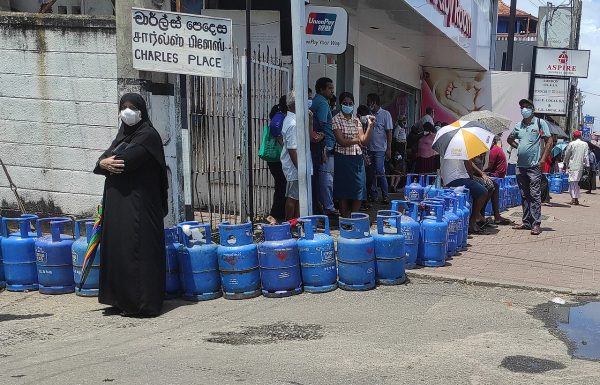
9. Can Sri Lanka Afford to Go Green?
Sri Lanka’s President Ranil Wickremesinghe appointed a Green Finance Committee to pioneer a roadmap for sustainable finance and emphasized the need for resource mobilization from multilateral development banks and the private sector to achieve climate change targets. As part of Sri Lanka’s Nationally Determined Contributions (NDCs), the government committed to supplying 70 percent of its domestic electricity with renewable energy sources by 2030, with the longer-term goal of achieving a full renewable electricity supply by 2050.
However, given the current fiscal constraints imposed by the economic crisis and the scale of investment required to address structural imbalances in the energy sector, it is becoming increasingly challenging to achieve this target. Therefore, policymakers must explore innovative financing solutions to maintain investments in this sector and facilitate the essential green energy transition.
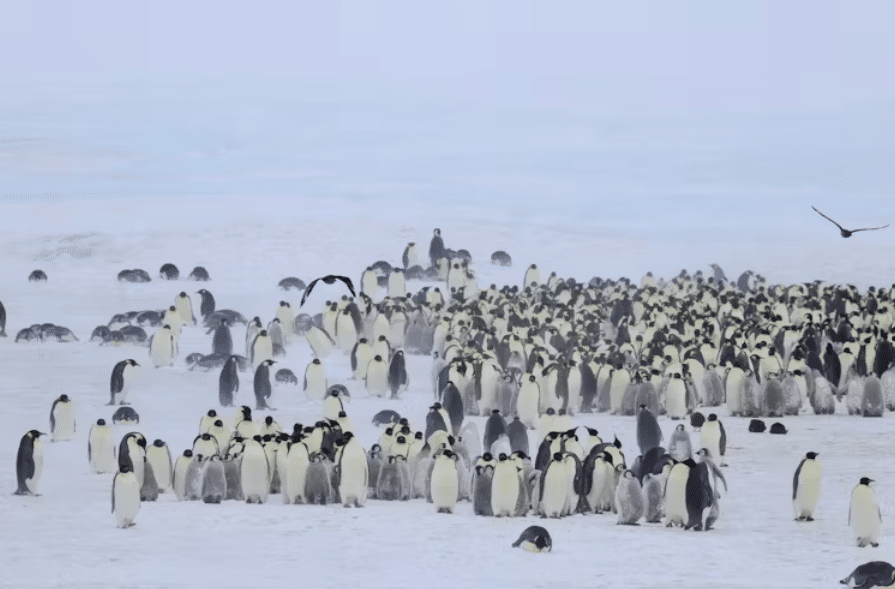
10. Emperor Penguins Face a Bleak Future – but Some Colonies Will Do Better Than Others in Diverse Sea-Ice Conditions
The future may look bleak for Emperor penguins, but new research shows some birds may be able to survive depending on where they live. Antarctic sea ice has drastically decreased over the last two years, prompting concerns of a potential “new state.” Recent satellite imaging reveals early sea ice breakout in Antarctica’s Bellingshausen Sea in 2022, risking breeding failure for Emperor penguins in the area.
Despite these challenges, they exhibit adaptability in selecting breeding habitats across diverse environmental conditions, offering a glimmer of hope. They rely on “fast ice,” coastal sea ice, for stable breeding platforms. If fast ice disappears, over 90% of Emperor colonies could face extinction by the century’s end. Climate change and fishing activities pose significant threats to their survival. Nonetheless, now that research provides more information about their habitats, we can plan for more effective conservation.
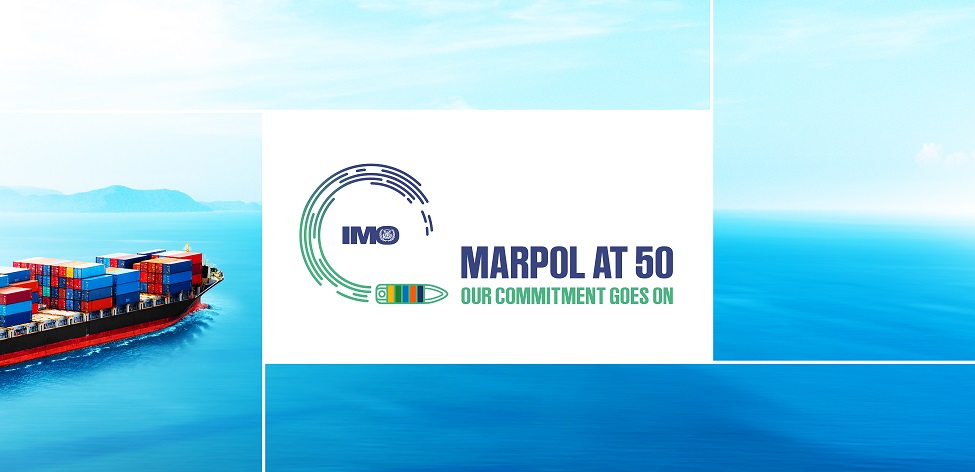
11. World Maritime Day 2023 Highlights Marine Environment Protection
This year marks the 50th anniversary of adopting the International Convention for the Prevention of Pollution from Ships (MARPOL), the primary global treaty for preventing pollution of the marine environment by ships from intentional, operational, or accidental causes.
The theme of World Maritime Day 2023 is “MARPOL at 50 – Our commitment goes on”. It throws a spotlight on IMO’s important regulatory work over half a century to protect the environment from the impact of shipping, and emphasizes the Organization’s ongoing commitment to do more in support of the UN 2030 Agenda for Sustainable Development and the 17 Sustainable Development Goals (SDGs).
Countries themselves are the backbone of this treaty. The Minister of Transport and Infocommunications of Brunei (formally Brunei Darussalam, located on the island of Borneo) said that this year’s World Maritime Day holds immense importance in recognizing the pivotal role that maritime activities play in the global economy and sustainable development.
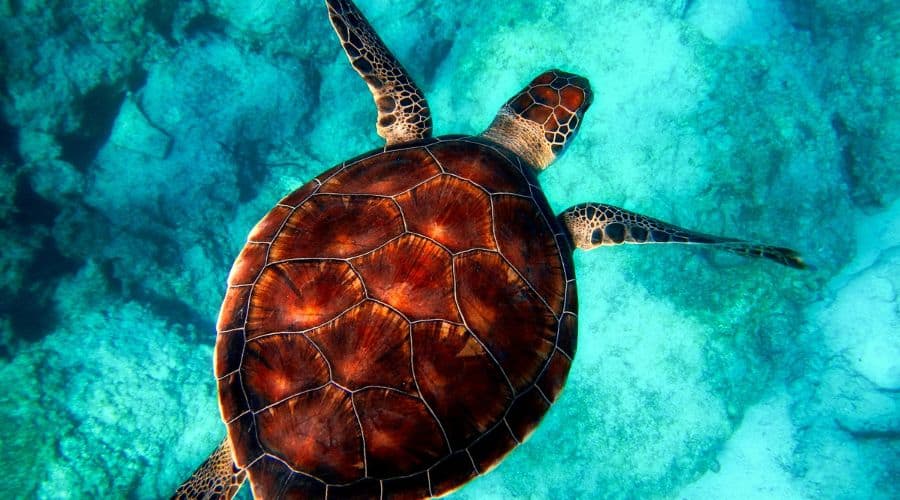
12. Sea Turtle Protection Zone Initiative Urges Boaters to Slow Down
Mote Marine Laboratory in Florida is using laser speed guns to collect data on boaters’ habits as part of its two-month-old Sea Turtle Protection Zone initiative. Sea turtles are an endangered species found year-round in Southwest Florida waters. Mote scientists have created the voluntary Sea Turtle Protection Zone, which stretches from Longboat Key to Siesta Key, including Sarasota Bay.
Mote says since the 1980s, boat collisions with sea turtles have tripled in Florida. This year has been particularly hard on the sea turtle population. And 90% of sea turtle strikes are fatal, according to Valerie Nicole Tovar, conservation manager at the Loggerhead Marinelife Center. “Our goal … is to increase boater awareness and enlist boater voluntary compliance to decrease sea turtle injuries and deaths by creating a united front with our local boating communities,” Tovar said.

13. Fewer Young People Are Choosing Fishing as a Profession
Young commercial fishers are in short supply. The aging commercial fishing industry has high barriers to entry — equipment and access rights are costly — and is increasingly unpredictable as human-caused climate change alters marine habitats. Now fishers and conservation groups are working to bring in and retain the next generation of fishers through grants and training.
One young fisher said working as a commercial fisher today means working to undo the damage to fisheries from harmful practices in the past like overfishing and understanding the impact climate change will have on fish populations. The U.S. Congress passed the Young Fishermen’s Development Act in January 2021. As part of that act, the National Oceanic and Atmospheric Administration’s Sea Grant Office awarded about $1 million this year to help fund on-ship training and mentorship for young fishers in Alaska.

14. Fisheries 2.0: Navigating the Blockchain Revolution
In an era marked by increasing concerns over food security, traceability, and sustainability, the intersection of blockchain technology and the fisheries industry has emerged as a beacon of hope. To understand how blockchain technology can be used in fisheries, it’s crucial to have a firm grasp of its fundamental principles. At its core, a blockchain is a digital ledger that is decentralized and widely distributed. Blockchain operates through a network of computers, referred to as nodes, which validate and securely document transactions.
These transactions are grouped together into blocks, creating a continuous chain of data, thus giving rise to the name “blockchain.” Blockchain technology presents a significant opportunity for the fisheries sector. Its capacity to improve transparency, traceability, and security within the supply chain addresses critical problems such as illegal fishing, fraudulent activities, and misrepresentation. These advancements will lead to advantages for consumers, fishermen, and regulatory bodies.
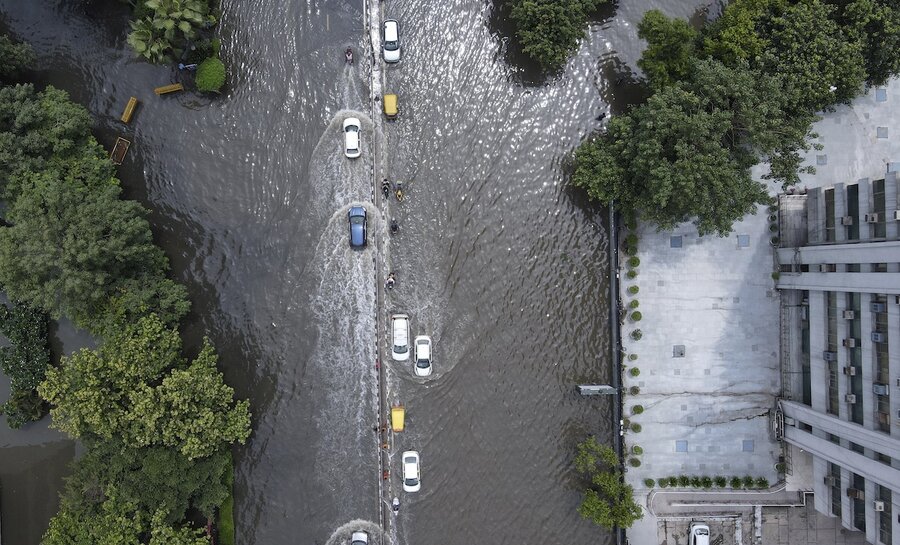
15. Even India’s Monsoon Season Is Wetter Than Normal
India had more property damage in this year’s monsoon season than in the past five seasons combined. The damage was worsened by climate change and exacerbated by unregulated development and lack of state preparedness. The devastation of this year’s monsoon season in India, which runs from June to September, has been significant: Local government estimates say that 428 people have died and Himachal Pradesh suffered over $1.42 billion worth in property damage since June.
And when all the water pours in one place, it means other regions are starved of rain. In the south of the country, rain was so rare that the region had its driest monsoon season since 1901. The government of Karnataka in southern India declared drought conditions in most of the state. Climate change compounds the phenomenon of weather extremes, with both droughts and deluges expected to intensify as the world warms.
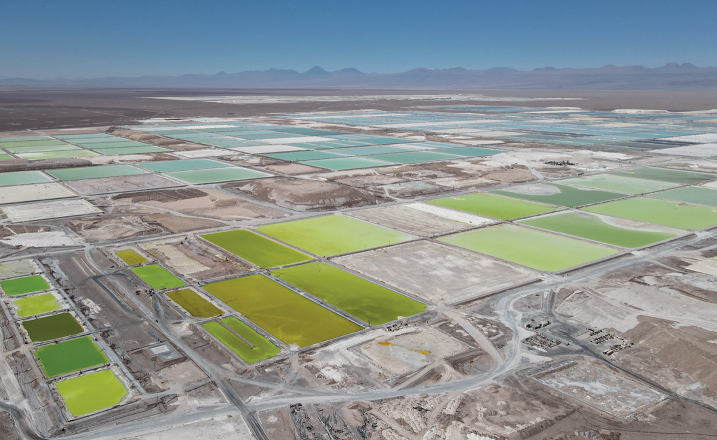
16. Facing Climate Change Across Latin America and the Caribbean
Nature commissioned nine researchers from across Latin America and the Caribbean what they see as the most pressing research questions, concerns and knowledge gaps for their regions. They discuss how climate change affects both humans and nature, but also the particular challenges that emerge as a changing climate interacts with other social and environmental issues that range from threatened biosystems to extractivism and deforestation.
Climate change poses major socio-political challenges for Latin America: many communities in the region are highly vulnerable to weather extremes, while relevant economic activities such as agriculture and tourism can also be disturbed. More frequent droughts highlight the urgent need for effective national drought risk management plans. Mitigation strategies could help offset health effects of climate change. Financing sustainable development as well as other environmental issues, such as land use and pollution, also offer challenges and opportunities.
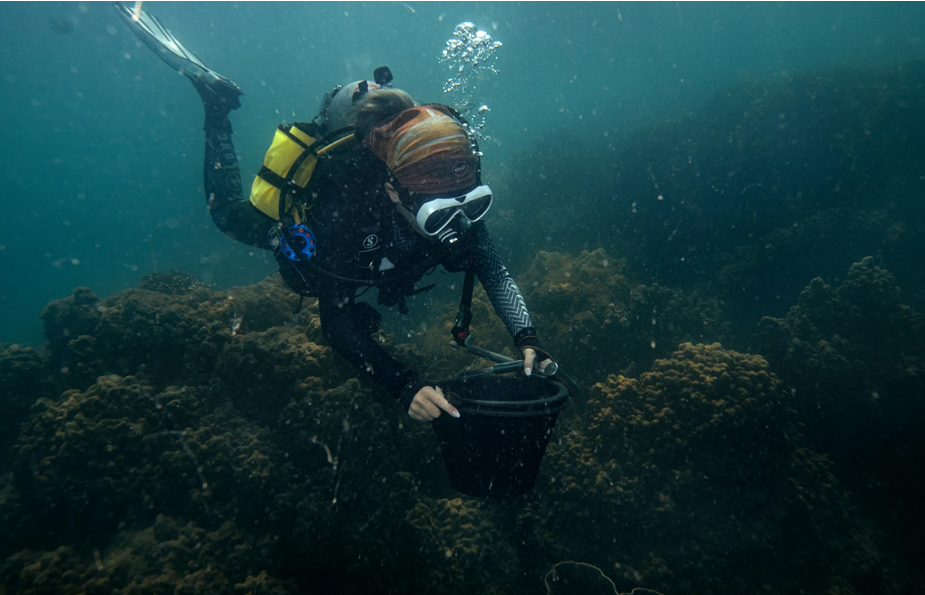
17. How Damaged Are Coral Reefs? I Dive to Investigate Climate Change Marine Biologist Long Ying Studies How Warmer, More-Acidic Oceans Are Affecting These ‘Trees of the Seas’
Consider coral the trees of the seas. It is beneficial to both humans and animals, providing oxygen, safe habitats, and a beautiful form of protection from the elements. Sadly, coral is being killed off by higher ocean temperatures, lower oxygen, and increased carbon dioxide, all of which are caused by climate change. It is not just the responsibility of those who live in coastal regions to help protect ocean environments; everyone needs to be involved.
Fishing, tourism, and other various human activities that people from all over the world participate in, are frequent causes of irreparable damage to coral. These pursuits obviously cannot be entirely banned; however, steps can be taken by all individuals involved to make these activities more sustainable for the health of the environment and consequently, coral, the trees of the sea.




